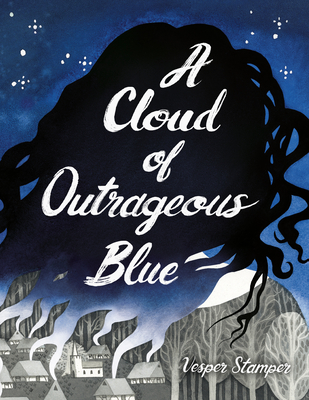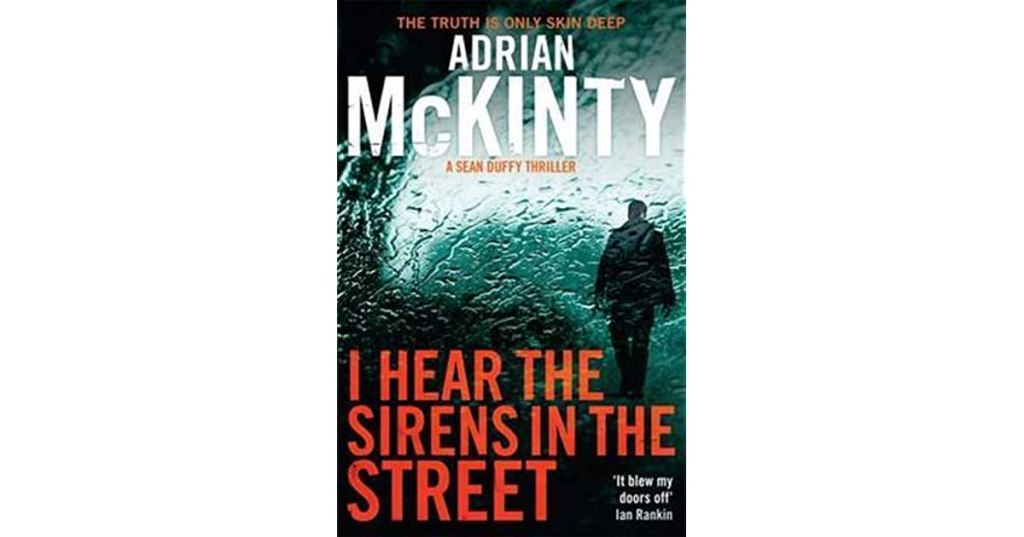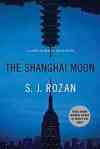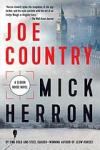April 2021 Reading
March 2021 Reading
February 2021 Reading
January 2021 Reading
Welcome me back to blogging?
Well, it’s January 1, 2021, and I notice it’s almost THREE YEARS since I last posted to this blog.
One reason this happened is that the audiobook reviewing program in which I was participating went into a decline, and is now apparently extinct. The whole reason I set up this blog was in order to have a place to post my reviews, which was one of the requirements of that program.
However, I now get ALCs from Libro.fm (one of the perks of being a librarian), and although posting a public review is not a requirement for that privilege, I know it would be a good thing to do.
So let’s see if I can get back into the swing of things, shall we?
Audiobook Review: Our Lady of the Prairie
Our Lady of the Prairie
Author: Thisbe Nissen
Narrator: Hillary Huber
Published 2018 by Blackstone Audio
15 hours, 7 minutes – Unabridged
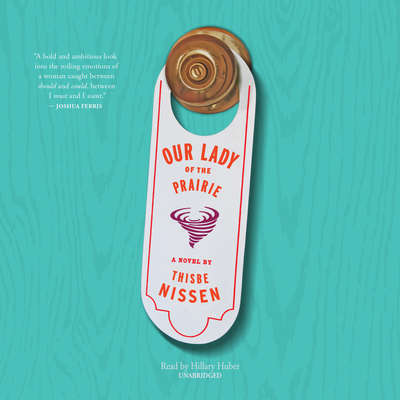 “So much of this life we spend holding ourselves together, when all we’re really looking for is someone who might undo us completely.” This novel documents the undoing (and the possible doing-back-up-again) of Phillipa Maakestad, a 50-year-old theatre professor in Iowa. She has spent the last 20-odd years holding herself together, married to fellow professor Michael and bringing up their mentally ill daughter Ginny. Now, on a semester-long teaching exchange in Ohio, Phillipa meets Lucius Bocelli, a scholar of World War II French collaborationists, and from the moment she meets him, she wants to sleep with him.
“So much of this life we spend holding ourselves together, when all we’re really looking for is someone who might undo us completely.” This novel documents the undoing (and the possible doing-back-up-again) of Phillipa Maakestad, a 50-year-old theatre professor in Iowa. She has spent the last 20-odd years holding herself together, married to fellow professor Michael and bringing up their mentally ill daughter Ginny. Now, on a semester-long teaching exchange in Ohio, Phillipa meets Lucius Bocelli, a scholar of World War II French collaborationists, and from the moment she meets him, she wants to sleep with him.
The desire is mutual, and before long the two are conducting a full-blown affair. When the time comes for Phillipa to return to Iowa, she drives home and immediately confesses to Michael. What ensues in the weeks and months to follow is a messy windstorm of comedy and drama, complicated by Ginny’s marriage to Silas, a young Amish man who has turned his back on his upbringing; Michael’s thoroughly disagreeable mother Bernadette being kicked out of yet another nursing home; Phillipa’s lodging in various short-term situations while conducting a long-distance relationship with Lucius; and the peripheral involvement of various characters residing in River City and Prairie, Iowa.
If you’re looking for epiphanies or the tying up of loose ends, prepare to be disappointed. Instead, Our Lady of the Prairie raises intriguing questions about the nature of our relations with, assumptions about, and obligations to the human beings with whom we surround ourselves in the course of a life. The fact that those questions are not noticeably laid to rest in the course of the novel ought not to detract from the pleasure the listener can take in getting caught up in the whirlwind of Phillipa’s midlife crisis. A longish section in the middle in which Phillipa spins an elaborate fantasy about her mother-in-law’s possible past as a French Nazi collaborator can be received as either a tedious and disorienting interruption of the narrative, or an intriguing flight of historical speculation, depending on your proclivities.
Hillary Huber’s laconic alto is a fitting vehicle for Phillipa Maakestad’s self-absorbed meanderings. In a first-person narrative like this one, the reader’s voice personifies the protagonist, and here that is accomplished seamlessly. Huber capably portrays all of the characters in Phillipa’s orbit as well, with enough vocal variations to differentiate them all.
For listeners who are up for a leisurely paced slice-of-life narrative of one middle-class, middle-aged white woman, who starts out with almost zero self-awareness and ends up with only the slightest awakenings of same, Our Lady of the Prairie may be an entertaining listen. Those who require major revelations and satisfying resolutions may do better to look elsewhere.
~*~
Disclaimer: I received a copy of this audiobook from the publisher as part of the Solid Gold Reviewer program administered by Audiobook Jukebox. No payment was received in return for a review. The receipt of the book had no influence on the opinions expressed in my review.
Audiobook Review: Dead Man’s Blues
Dead Man’s Blues
Author: Ray Celestin
Narrator: Christopher Ragland
Published 2016 by Recorded Books
14 hours, 35 minutes – Unabridged
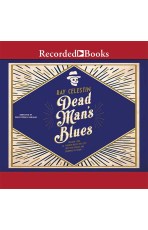 In Chicago in the 1920s, Al Capone ruled. Gangsters, speakeasies, tommy guns, basement distilleries, and bombs were the order of the day. At the same time, jazz was coming into full flower, with the potential to integrate the races through their mutual love of the music and the scene it engendered. This wasn’t just Capone’s Chicago; it was also Louis Armstrong’s. In the midst of everything, there were the Pinkertons: employees of the Pinkerton Detective Agency, battling crime and corruption … and sometimes falling prey to it themselves.
In Chicago in the 1920s, Al Capone ruled. Gangsters, speakeasies, tommy guns, basement distilleries, and bombs were the order of the day. At the same time, jazz was coming into full flower, with the potential to integrate the races through their mutual love of the music and the scene it engendered. This wasn’t just Capone’s Chicago; it was also Louis Armstrong’s. In the midst of everything, there were the Pinkertons: employees of the Pinkerton Detective Agency, battling crime and corruption … and sometimes falling prey to it themselves.
As Dead Man’s Blues opens, it is the summer of 1928, the city of Chicago is sweltering under a heat wave, and three different seemingly unrelated investigations are about to get under way. Longtime professional partners Michael Talbot and Ida Davis are Pinkerton detectives, hired by a distraught upper-crust mother to find her missing daughter, a young woman with a fortune to inherit and a taste for Chicago nightlife. Jacob Russo, a would-be cop who is settling for working as a crime-scene photographer, encounters a dead body that brings back personal memories and spurs him to do a little independent sleuthing. And Al Capone himself has summoned one of his best fixers, Dante Sanfelippo, back from New York to try to finger the traitor he knows is in his ranks. But Dante has secrets of his own, secrets that could get him killed.
Thus the scene is set for a period mystery, one in which three separate strands of story gradually converge and then get braided up into one. It is a serviceable crime novel – enjoyable enough, but not really a standout. Celestin includes enough historical detail for a plausible setting, but character development takes a back seat in favor of plotting. Christopher Ragland tries to differentiate between characters with different accents, and with pitch changes between men and women. However, his Southern accents in particular are jarring and seem mostly inappropriate, and his rather shrill portrayals of the women characters took this listener right out of the story.
Listeners with an affinity for the period, especially those with an interest in the history of jazz and/or the Capone organized crime empire, probably form the best audience for Dead Man’s Blues and its possible future sequels.
~*~
Disclaimer: I received a copy of this audiobook from the publisher as part of the Solid Gold Reviewer program administered by Audiobook Jukebox. No payment was received in return for a review. The receipt of the book had no influence on the opinions expressed in my review.
Audiobook Review: Cliff Diver
Cliff Diver
Author: Carmen Amato
Narrator: Johanna Parker
Published 2017 by Tantor
11 hours – Unabridged
 When you’re the only female police detective in a world-famous Mexican resort city, with the hustle for tourist dollars on one side, the overwhelming power of the drug cartels on the other, and every interaction steeped in centuries of machismo, it’s complicated. For Detective Emilia Cruz of Acapulco, things are about to get a whole lot more tricky.
When you’re the only female police detective in a world-famous Mexican resort city, with the hustle for tourist dollars on one side, the overwhelming power of the drug cartels on the other, and every interaction steeped in centuries of machismo, it’s complicated. For Detective Emilia Cruz of Acapulco, things are about to get a whole lot more tricky.
Sure, a beheaded chauffeur, an American couple’s SUV stuffed with counterfeit, and the recovery of a thumbless kidnapping victim sounds like a sensational sequence of events – but these things are unfortunately all in line with the usual crime business in today’s Mexico. And the squad room is a textbook case of the hostile work environment in a sexual harassment suit (if Mexico had such a thing): not only does Emilia have to carry her own roll of toilet paper into the detectives’ restroom – where the stalls have no doors – but her commanding officer invariably follows her in and silently observes her in the mirror while he’s at the urinal opposite. But it’s after this same lieutenant turns up dead on his boat, adrift in the bay, that Emilia’s situation really becomes challenging.
Despite her junior status among the detectives, Emilia is stunned to find herself designated acting lieutenant for the duration of the investigation into the supervisor’s death. It seems that some extremely powerful people in the chain of command view her as a useful pawn in a mystifying game. In order to survive, Emilia must not only discover the truth about the lieutenant’s demise, but also untangle a complex knot of police corruption, corporate financial shenanigans, and political quid pro quo that gets more dangerous as she goes. Her adversaries may have underestimated her, though, and as things heat up, Emilia begins to learn just what she’s made of.
Johanna Parker takes some getting used to as a reader. Her voice is soft and husky, almost whispery at times, and her delivery tends toward a monotonous sing-song. In voice characterizations, she is competent enough with females, but her portrayal of male characters is less successful. This is a case where the performance of the reader works against the text, and is more often a distraction than an enhancement.
Beyond the limitations of the reader, however, the listener can find pleasure in this audiobook. Emilia Cruz is an appealing character whose strength and courage are considerable, balanced by the constant battle to avoid being overwhelmed by her daily fight as a woman in a man’s world, and by the challenges of her personal life. The setting is a refreshing departure from the crime fiction norm; the juxtaposition of the sunny seaside splendor of Acapulco with the gritty realities of its seamy underside creates an interesting tension, as well as offering opportunities to reflect on the ways that a society of haves and have-nots tends to perpetuate crime.
~*~
Disclaimer: I received a copy of this audiobook from the publisher as part of the Solid Gold Reviewer program administered by Audiobook Jukebox. No payment was received in return for a review. The receipt of the book had no influence on the opinions expressed in my review.
Audiobook Review: The Dark Flood Rises
The Dark Flood Rises
Author: Margaret Drabble
Narrator: Anna Bentinck
Published 2017 by Dreamscape
13 hours, 22 minutes – Unabridged
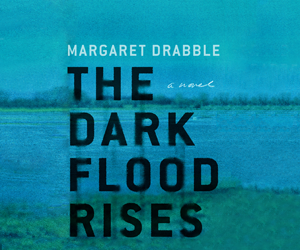 I read a Margaret Drabble novel for the first time almost 40 years ago, and was instantly hooked. What is it about her books that makes them so good? My sister and I used to ponder this, discussing how we would tend to respond whenever someone asked us, “But what’s that book ABOUT?” We agreed that the answer was, essentially, “It’s about some people and they know each other, and they all do some things, and think about some things, and maybe talk to each other about those things … .” Which always ends up sounding sort of lame, and makes people think the books may not have much to them. On the contrary, Margaret Drabble novels are invariably immersive and satisfying, providing not only windows into her small worlds of contemporary English educated middle-class adults, but mirrors in which the reader may contemplate his/her own reality.
I read a Margaret Drabble novel for the first time almost 40 years ago, and was instantly hooked. What is it about her books that makes them so good? My sister and I used to ponder this, discussing how we would tend to respond whenever someone asked us, “But what’s that book ABOUT?” We agreed that the answer was, essentially, “It’s about some people and they know each other, and they all do some things, and think about some things, and maybe talk to each other about those things … .” Which always ends up sounding sort of lame, and makes people think the books may not have much to them. On the contrary, Margaret Drabble novels are invariably immersive and satisfying, providing not only windows into her small worlds of contemporary English educated middle-class adults, but mirrors in which the reader may contemplate his/her own reality.
At the heart of Drabble’s latest novel, The Dark Flood Rises, are the intertwined realities of aging and mortality – truly universal human concerns. The title comes from the D. H. Lawrence poem “The Ship of Death,” lines from which (along with the entirety of W. B. Yeats’s “The Wheel”) form the novel’s epigraph. References to both of these poems recur throughout the story, in the minds and mouths of various characters. Alongside the metaphorical rising flood of death as it approaches assorted characters in a number of ways, Drabble also works in the not-at-all-figurative worldwide rising waters that come with climate change. The result is a rich tapestry of 21st-century life among people who have lived many decades and have much to reflect on.
Fran Stubbs forms the axis upon which swing all the other characters and their narratives. Fran is 70-something, still working as an expert consultant on housing for the elderly. That is her paying job, and it takes her all over England, and in and out of various facilities. What takes up a lot of her unpaid time and attention is being a caregiver for her homebound, non-ambulatory, and still quite self-absorbed ex-husband Claude. Their two late-middle-aged children both currently find themselves in situations close to the physical rising waters of our world: Christopher is visiting friends and attending to some unpleasant personal affairs in the Canary Islands (an archipelago with shrinking coastlines and a burgeoning refugee population), and Poppet, who is semi-estranged from her mother for reasons never fully explained, lives on the banks of a canal at the edge of a salt marsh, where brown water swells and threatens to maroon her small cottage.
As the story unfolds, in England and in the Canaries, characters cope with the infirmities and deaths of friends and loved ones, reflect on history (ranging from the deeply personal to the broadly geopolitical), and try not to worry about forces beyond their control, including (but not limited to) genocide, earthquakes, disease, global warming, and slipping on the stairs.
Reader Anna Bentinck does a highly professional job, disappearing completely into the characters and the narrative until the listener no longer “hears” her voice, but seems to receive the story fully formed in the center of the skull. No flash, no furbelows – just a seamless audiobook experience that clips along smoothly without any sense of the time going by. This was my first experience with Bentinck, but I hope not the last.
Like most Drabble books, this is not a tale of big, cataclysmic events, but of the cumulative effects of everyday occurrences in interconnected everyday lives. If it seems to end rather abruptly, that is surely by design, given the novel’s preoccupation with the end of life. As Fran reflects after the unexpected death of a close friend, “Nobody will ever know now which way her mind was wandering, to what small revelations her enquiries were leading her. It’s of no importance whatsoever … .” And yet the listener finishes feeling grateful to have been privy to the gently lapping waves and the subtly shifting currents in the lives of these people Drabble has presented us with, as we await the flood that is coming for us all.
~*~
Disclaimer: I received a copy of this audiobook from the publisher as part of the Solid Gold Reviewer program administered by Audiobook Jukebox. No payment was received in return for a review. The receipt of the book had no influence on the opinions expressed in my review.








